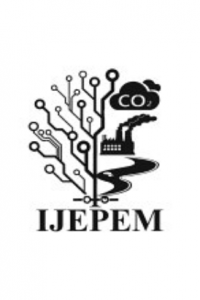Air Impurity Study of Elbasani Town – Albania
Air Impurity Study of Elbasani Town – Albania
Air contamination, M.P.A. Czapek, Microbiological, Elbasan city - Albania,
___
- [1] Madigan, M., Martinko, J., 2006, Brock Biology of Microorganisms (13th Ed.). Pearson Education, ISBN 0-321-73551-X, 1096 pp.
- [2] Mali, S., 2007, Mikrobiologjia. Tiranë (Extra), 360 pp.
- [3] Gest, H., 2005, “The remarkable vision of Robert Hooke” (1635-1703): First observer of the microbial world. Perspect. Biol. Med., 48 (2), 266–272.
- [4] Bogoev, V., Kenarova, A., Traykov, I., Tzonev, R., Tzekova, R., Stoyanova, T., Boteva, S. and Parleva N., 2010, Biotechnol. Biotech. Eq., 24, 240-246.
- [5] Jançe, A., 2015, Studimi palinologjik i depozitimeve të Kuaternarit në Qytetin e Elbasanit. Monografi. ISBN: 978-9928-137-78-4. Tirana (JULVIN 2), 140 pp.
- [6] Sullivan, J.J., 1979, Air microbiology and dairy processing. Aust. J. Dairy Technol., 34, 133-138.
- [7] Davis, W.T., 2000, Air Pollution Engineering Manual, 2nd Edition. Wayne T. Davis, Air & Waste Management Association. ISBN: 978-0-471-33333-3, Wiley, 912 pp.
- [8] Bowers, R.M., Clements, N., Emerson, J.B., Wiedinmyer, C. and Hannigan, M.P., 2013, Seasonal variability in bacterial and fungal diversity of the nearsurface atmosphere. Environmental science & technology, 47(21), 12097-12106.
- [9] Núñez, A., Amo de Paz, G., Rastrojo, A., García, A. M., Alcamí, A., Gutiérrez-Bustillo, A. M. and Moreno, D. A., 2016, Monitoring of airborne biological particles in outdoor atmosphere. Part 1: Importance, variability and ratios. International Microbiology: The Official Journal of the Spanish Society for Microbiology, 19 (1), 1–13.
- [10] Gandolfi, I., Bertolini, V., Ambrosini, R., Bestetti, G. and Franzetti, A., 2013, Unravelling the bacterial diversity in the atmosphere. Applied microbiology and biotechnology, 97(11), 4727-4736.
- [11] Jay, J. M., Loessner, M. J. and Golden, D. A., 2006, Modern Food Microbiology. (Food Science Text Series) 7th Edition. Springer; 7th edition, 790 pp.
- [12] Jason, W. C., 2004, World Agriculture and the Environment: A Commodity-By-Commodity Guide to Impacts and Practices. Island Press, 570 pp.
- [13] Andersen, A.A., 1958, New Sampler for the collection, sizing, and enumeration of viable airborne particles. J Bacteriol., 76, 471-484.
- [14] Whyte, W., 1986, Sterility assurance and models for assessing airborne bacterial contamination, 40, 188–197.
- [15] Petri, R. J., 1887, Eine kleine Modification des Koch'schen Plattenverfahrens (Small modification of Koch's plate method), Centralblatt für Bakteriologie und Parasitenkunde, 1, 279–280.
- [16] Blomquist, G., 1994, Sampling of biological particles. Analyst, 53–56.
- Yayın Aralığı: Yılda 2 Sayı
- Başlangıç: 2018
- Yayıncı: Yasin Akın AYTURAN
Goga Ionelia Claudia, Mititelu-Ionuş Oana, Tîmburescu Constanţa
Caryophyllaceae Holocene Layout in Elbasan City – Albania
Air Impurity Study of Elbasani Town – Albania
Anila Jançe, Valentin Bogoev, Admir Jançe
Organochlorinated Pesticides and PCB In Some Medicinal Plants from South-East Albania
Bledar MURTAJ, Aurel NURO, Jonida SALİHİLA
